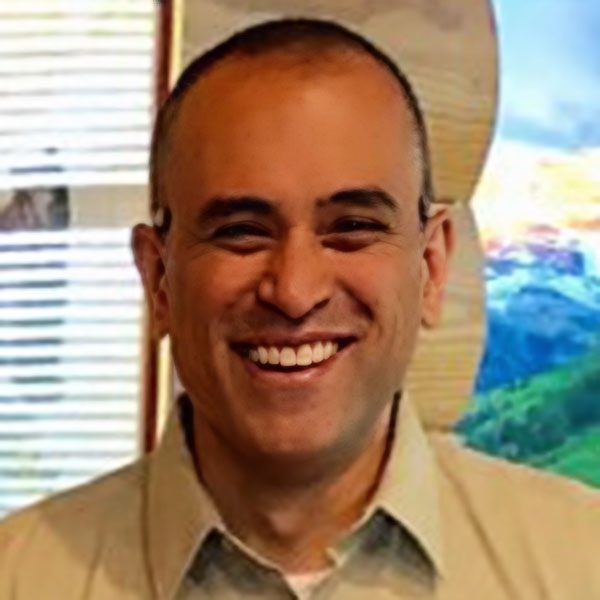Arvind Bhuta
Natural Resources Specialist, United States Department of Agriculture Forest Service, State, Private, and Tribal Forestry

By Emily Frisan
Education and Certificates: B.S. Zoology, B.S. Environmental Science, B.A. Geography from Auburn University; M.S. Geography, Ph.D. Geospatial and Environmental Analysis from Virginia Tech; Postdoctoral Fellowship in Forestry at Clemson University; Certified GIS Professional (GISP) and a certified Senior Ecologist through the Ecological Society of America.
At the U.S. Department of Agriculture Forest Service, Arvind Bhuta works in the State, Private, and Tribal Forestry program to enhance and maintain healthy ecosystems and watersheds. His specific work in the Cooperative Forestry unit is to address landscapes that are outside of what he refers to as “The Green:” the national forests managed by the Forest Service. He specifically works in rural landscapes under the Landowner Assistance department, assisting program managers with geospatial and tabular reporting and data analysis. Bhuta’s training as a geographer brings a valuable perspective to this work: “Thinking about space and place and how different states operate in maintaining those forests is important from a geographical perspective because it helps bring context.”
“I accidentally fell into GIS and then from [there], that was a Pandora’s box into learning about the discipline.”
Geographic Inquiry
The discipline of geography was not immediately obvious or available to Bhuta, but luckily, he happened to be in the right place, at the right time. “When I was a biology major, I found out about GIS. This was the late 90s, and I was very intrigued about what GIS had to offer because obviously biology or ecology wasn’t really doing any of those things.”
Throughout his wide-ranging educational experiences, this inquiry instantly hooked him “to what geography had to offer as a discipline and not really [previously] knowing that it was a major, I could pursue as a career opportunity.” Bringing together biology with elements of human and physical geography helped Bhuta shape and share his professional worldview, future interests, and successes.
Early Opportunities and Exposure
Aligning with the U.S. Forest Service’s mission to protect, balance, and manage natural resources, Bhuta emphasizes how his education in geography has allowed him to think critically and take a holistic approach to the work he does when working with people and programs. In addition to his extensive education, he has gained skills on–the–job through training in past and current positions that he’s held. Whether working in the public, private, or nonprofit sector, Bhuta says, “there will always be challenges to a job that academic training will not prepare you for. More than likely, you’ll get to experience it when and after you get hired.”
Early opportunities exposed Bhuta to a vast array of professional experiences. Early on, he lived in the Everglades National Park as a GIS technician field mapping the endangered Cape Sable Seaside Sparrow. For two years after, he chased gopher tortoises in the field using GPS, radio telemetry units, and cameras to track their population and interactions across different habitats. His first experience as a federal employee as a summer intern at the U.S. Environmental Protection Agency and later as an intern with the U.S. Army Corps of Engineers, exposed him to the world of careers within these agencies.
For those interested in working within the federal government, various opportunities such as internships to fellowships can give young geographers an opportunity to advance their professional journeys. Within the Forest Service, the Research Assistant program allows individuals to come into the agency noncompetitively, which enables some of them to be appointed to federal positions without competing with the general public. Bhuta also suggests networking with people within these agencies who have backgrounds in geography, which can open doors for students. For example, at the 2023 Annual Meeting, Bhuta met with students and young professionals to discuss techniques and answers questions on how to navigate the federal career path: “That’s a great opportunity to network with people who work in the federal government and ask questions like, ‘what do I need to do’ in terms of course work, internships, or other jobs to get my foot in the door to work in the [sector].”
Learn more about what a degree in geography can do for you by reading more AAG Career Profiles and discover the resources we offer for your professional development journey.